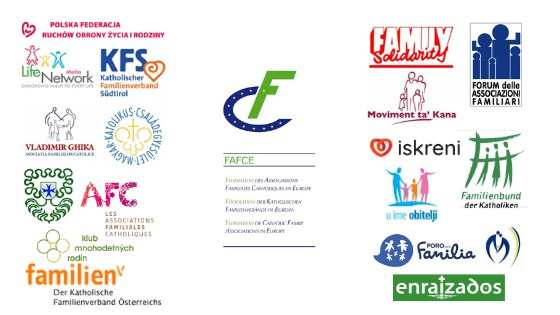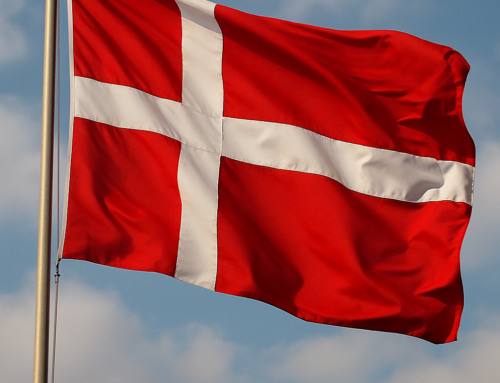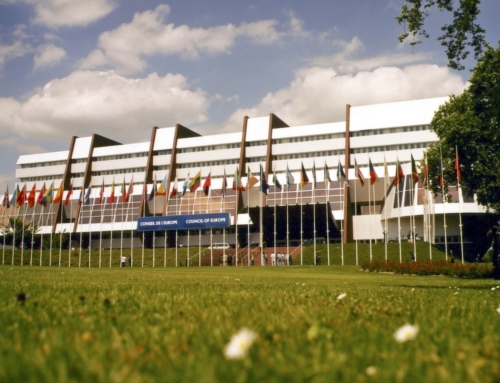Teresa Kapela
Związek Dużych Rodzin ”Trzy Plus” – ZDR3+
Family policy in Poland has only about 10 years. Previously, in the enthusiastic context of the fall of the communism, every attempt to talk about family policy was considered as nostalgia of the former system. Family associations were a strong support to family policies. These associations were founded answering to a great need of change in this regard. Getting in touch with ELFAC and FAFCE, European federations, was an important element for this. Związek Dużych Rodzin ”Trzy Plus” – ZDR3+ was founded in 2007, but already in 2006, we had organised a conference at the Polish parliament about the situation of large families. Thanks to the participation in this conference of François Meause from AFC, Raul Sanchez from ELFAC, Yeno Radnay from MKC-Hungary and Barbara Fiala from FDK, we were able to get informed about family policy in other countries. That served us as inspiration, without forgetting that each country has its own identity.
In 1997, the Polish constitution was changed. Article 18 states that “the Polish Republic grants the protection and support to couples as a union of a woman and a man, to family, to maternity and to paternity.”
But it took years of discussion to realise what was written in the constitution.
It was only in 2007 that benefits for children were introduced in the tax system. Before, our tax system did not make any difference between people that worked and had dependent children and people free from these obligations. People raising their children alone were the only exception and could include children in their tax report, similarly to people doing their tax report with their partner. The fiscal benefit, although important, did not take into account every child, because of different forms of employment and extremely low wages.
When we created our large families’ association, Poland had 17% of large families, which accounted for 33% of children in the country. We thus began looking for mechanisms that could help reduce the costs of raising children. We started talking about the Large Families Card. Distributing the first local Cards, at a meeting of large families in Grodzisk Mazowiecki, on Christmas time, was a great celebration. Grodzisk Mazowiecki is a small village in the suburbs of Warsaw, where our President lives. The mayor of Grodzisk Mazowiecki quickly declared himself a supporter of measures taken in benefit of large families. The card grants free public transportation for families with 4 children and 50% off on swimming pools, cinemas and activities at the cultural centre. Other municipalities replicated this model. Finally, in 2014, the government approved the creation of a national Large Families Card. This is valid for lifetime for parents and until 18 years of age for children or 25 years, if they continue studying. The card is valid for lifetime also for disabled children.
In 2004, new measures of allocation of family allowances took effect. They would benefit those who won a maximum of 504 zl (120 euros) per person per month. That means that only half of children received these allowances, which was not satisfactory. Moreover, as the reference income was not updated for a long time, the number of families having right to these allowances was becoming lower and lower. After 2012, the revenue rate per person was gradually changed, until it achieved 674 zl, approximately 155 euros.
However, all these advances made little to change the financial situation of families, especially of large families. That is why proposals in favour of family policy found a place in the programmes of every party before the last election. Law and Justice proposed, among other things, granting every family a family allowance, starting from the second child. This is the programme 500+. That is a profound change on family finances, intending to fight the dramatic statistics of child poverty in Poland, which are alarming since the beginning of the economic transition.
From the 1st of April 2016, every family may ask for universal financial aid for their second child and the following children, until they turn 18 years old. It corresponds to 500 zl (114 euros) per child per month. Until now, it was about 18 euros under means tested conditions. Financial support is granted to only children, if the revenue per person is not over 800 zl (182 euro). A family with three children will then receive an amount higher than the current minimum income.
This is the first programme of financial support to families with such a great importance and broad scope. Therefore, it raises a debate, with emotions and doubts involved. One wonders what families will do with such an important financial aid, whether they will waste it or not. One wonders also whether the national budget can support such an expense. Analyses from the World Bank suggest that poverty of families will disappear. But this new measure may also have consequences in the job market. Employers will be obliged to increase their revenues. The exit of women from the labour market is much discussed.








